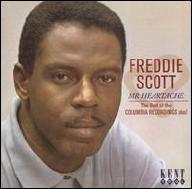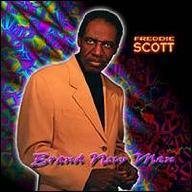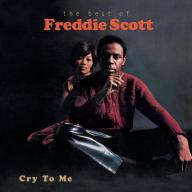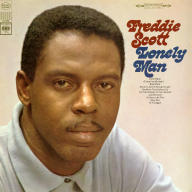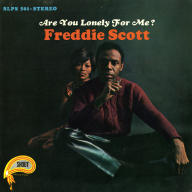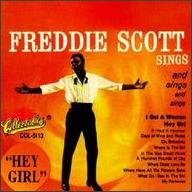The record earned little attention, but Johnnie Joe scored soon after with the Scott-penned I'll Be Spinning. However, in late 1956 he was called up for military duty, briefly serving in Korea. But Scott's service stint did not completely curtail his recording career, and for the tiny Bow and Arrow label he cut 1957's Tell Them for Me, followed a year later by Please Call and A Faded Memory. After completing his military stint, Scott landed with the short-lived Enrica label for 1959's Come On, Honey, and when it met the same indifference that greeted his previous records he focused on songwriting, teaming with Helen Miller to compose for Al Nevins and Don Kirshner's Brill Building firm Aldon Music.
Scott sang on many of his Aldon demos and worked briefly as a producer, helming sessions for Aretha Franklin's sister Erma. In 1961, he also resumed his recording career, cutting Baby, You're a Long Time Dead for the Joy label. In 1962, fellow Aldon songwriters Gerry Goffin and Carole King approached him for assistance with Hey Girl, a new tune they hoped to pitch to soul singer Chuck Jackson. When Jackson proved unable to make the scheduled recording session, Scott cut the vocal instead, and when Colpix Records finally issued the ballad a year later, he entered the Top Ten on both the pop and RB charts. A slow-burning rendition of Ray Charles' RB classic I Got a Woman followed, affirming Scott as a deep soul singer of uncommon depth (even if efforts like his third Colpix entry, Where Does Love Go, suffered from sugary over-production).
Diminishing commercial returns combined with Colpix's crumbling infrastructure to relocate Scott to parent label Columbia, which dubbed him "the Million Dollar Baby" and recast him as a crooner with 1964's One Heartache Too Many. In 1965, he even released Everything I Have Is Yours, a cabaret-inspired LP comprised largely of hit movie themes. The makeover fell flat, and Scott returned to a more traditional soul dynamic with the excellent Lonely Man. Record sales were virtually nonexistent, however, and after two last-gasp Columbia singles -- including the poignant ballad Don't Let It End This Way -- the label let him go.
Scott resurfaced in 1966 at Shout Records, the fledgling soul label founded by producer/songwriter Bert Berns -- together they co-wrote Are You Lonely for Me, a simmering, bluesy knockout that reportedly required over 100 vocal takes prior to completion. Scott's Herculean effort was rewarded with a record that topped the RB charts for four weeks while rising to number 39 on the pop charts. The 1967 follow-up, Cry to Me, proved a commercial disappointment, but Scott's impassioned, tender performance represents his creative apex. He returned to the RB Top Ten with the funky Am I Grooving You?, and while Just Like a Flower missed the charts entirely, 1968's (You) Got What I Need earned a spot in the RB Top 40 as well as an eccentric cover by rapper Biz Markie some 20 years later.
But after Berns died of a massive heart attack on December 31, 1967, his widow, Eileen, proved unable to keep Shout Records afloat, and following one last Shout single, No One Could Ever Love You, Scott left the label, spending the next two years without a record deal. He finally landed with the short-lived Elephant V, issuing Sugar on Sunday in 1970. After cutting a follow-up, I'll Be Leaving Her Tomorrow, he again packed his bags, moving to ABC's Probe imprint for I Shall Be Released, scoring his final RB Top 40 entry with the title cut, a powerful rendition of the Bob Dylan perennial.
When Probe folded, Scott was again seeking a place to record, signing to Vanguard for the one-off 1971 single I Guess God Wants It That Way. Pickwick International released 1972's The Great If, and two years later Scott resurfaced on Mainstream with the ballad You Are So Hard to Forget, which proved his final single. By now he made his living primarily through writing advertising jingles with longtime composing partner Miller, and also turned to acting, appearing in the films #Stiletto and #No Way Out.
Scott also maintained a busy live schedule well into the 1980s before spending the following decade in virtual hibernation. He returned to music after agreeing to record a version of Van Morrison's Brown Eyed Girl for an Evangeline Records tribute album -- the project introduced Scott to producer Jon Tiven, and together they hatched plans to record a blues LP, in 2001 releasing Brand New Man, his first new material in close to a quarter century. Scott passed away on June 4, 2007. ~ Jason Ankeny, Rovi



